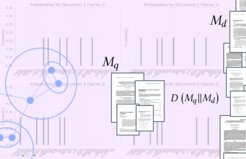Structural language evolution

Analyzing social tipping dynamics within the context of structural language evolution offers a novel lens through which to understand the mechanisms driving societal change. This research area intersects the fields of corpus-linguistics, social psychology, and network theory to explore how shifts in language structure — such as the introduction of new terminology, the evolution of grammar, or changes in language usage patterns — can act as indicators or catalysts of broader social transformations. By examining the ways in which language both reflects and influences social attitudes, behaviors, and norms, this analysis sheds light on the complex feedback loops between linguistic innovation and social tipping points. Through computational methods developed in the context of the ModelSEN project, social network analysis, and empirical studies, this approach aims to uncover the underlying processes by which language evolution can precipitate or signal significant shifts in societal values, practices, and institutions, ultimately contributing to a deeper understanding of social change mechanisms.











